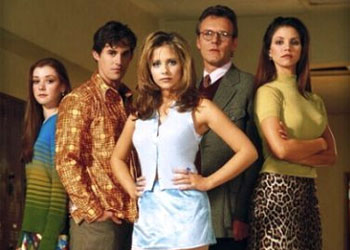
As any true fan of Buffy the Vampire Slayer can tell you, there’s much more to the TV series than just pretty girls kicking things. Sure, the action and crazy monsters might draw first time viewers in, but the thing that keeps the viewers and makes them into tried and true Whedonphiles is the depth and range of emotion and intellectualism that comes with Buffy. A month or so ago, McFarland & Company, Inc., contacted us to tell us about a line of books they publish that examines Buffy and its related series and genres with a scholarly approach. Being a longtime Buffyverse devotee, I asked if we could review some of their titles for Fandomania. Shortly thereafter we received a big box stuffed full of their books. I swear, it was like Christmas morning when I opened the box and saw all those geekily smart book spines staring back at me.
All of these books are written and edited by credentialed experts and scholars, and the books themselves largely are collections of essays about various aspects of the series, the fandom, and related issues. Rather than redundantly present all the points from the essays as a review, I thought the best way to cover these books would be to tell you about the principal themes covered in each of them, along with some mentions of specific essays, three books at a time. This first part in the multi-part review covers two essay collections specifically about Buffy the Vampire Slayer and a third that deals with vampires in general.
The Truth of Buffy
Edited by Emily Dial-Driver, Sally Emmons-Featherston, Jim Ford, and Carolyn Anne Taylor
The Truth of Buffy: Essays on Fiction Illuminating Reality presents 15 essays, each showing the connections and relationships between the fantastical world of Buffy and our real world. Some of the key pieces include:
- “Got Myself a Soul” by J. Renée Cox – an examination of the changing and sometimes contradictory representations of the concept of a soul in Buffy.
- “Lord Acton Is Alive and Well in Sunnydale” by Kenneth S. Hicks – a discussion about power and politics and the role they play in Buffy.
- “Love the One You’re With” by J. Michael McKeon – a look at the development of Xander, with references to Freud and Greek ethics.
- “What Shall Cordelia Say?” by Gregory J. Thompson and Sally Emmons-Featherston – an essay showing Buffy as a morality play.
It’s hard to pick just a few pieces from each book to highlight, because the whole thing is chock full of intriguing and insightful essays. In addition to the topics described above, The Truth of Buffy also looks at the validity of Buffy as a feminist icon, as well as the way in which the episode “Pangs” addresses (to varying success) Native American stereotypes in Western culture.
Buffy Goes Dark
Edited by Lynne Y. Edwards, Elizabeth L. Rambo, and James B. South, with a Foreword by David Lavery
As Buffy the Vampire Slayer developed over its seven season run on TV, its tone evolved from that of a lighter series with elements of darkness to a darker series with elements of light. This collection of essays examines that evolution and particularly looks at the way in which the show went dark during the final two seasons. The book is divided into four sections, each covering a specific element of Buffy over those final seasons:
- Auteurs – Two essays discuss the workings of specific Buffy creators, Marti Noxon and Jane Espenson.
- Characters – Three essays take on the sexual and political issues raised by the show’s inclusion and prominence of homosexual and pagan characters in Willow and Tara, as well as Andrew as a pop culture satire.
- Story – Four pieces about the narrative structure and style of Buffy at the end, along with a look at how the series changed after its move to UPN.
- Seasons – Four final essays that look at Buffy’s seasonal storytelling, as well as the ever present concept of a “chosen family.”
The final seasons of Buffy were controversial among the media and the fanbase, and seeing intelligent and thorough examinations of how the show dealt with issues and reshaped itself during that time makes for fascinating reading.
The Changing Vampire of Film and Television
By Tim Kane
The Changing Vampire of Film and Television: A Critical Study of the Growth of a Genre breaks with the format of the previous two books in that it is not a collection of essays by different writers. Rather, it is a long form examination of the development of vampires through the decades in popular media, all written by Tim Kane. Kane breaks down cinema and television into three distinct eras:
- The Malignant Cycle (1931-1948) – largely comprised of the Universal Monsters brand of vampiric horror.
- The Erotic Cycle (1957-1985) – the period that includes the Hammer horror films, as well as series like Dark Shadows.
- The Sympathetic Cycle (1987-current) – the more current type of vampire seen in productions like Buffy or The Lost Boys.
Kane uses 19 movies and TV shows as examples of the genre and delves into each to illustrate the ways in which vampires have changed and developed. He concludes the book with two appendices. The first provides synopses for all the vampiric works he uses as examples throughout the rest of the book. The second appendix, a Semantic-Syntactic Timeline, is probably the most interesting part of the book for me. It defines a number of common tropes of the vampire mythos, including the bite, the infection, and crosses, and it tracks them systematically and chronologically through all 19 movies and TV shows, describing the elements’ evolutions in a clear and concise table.
I will be covering more of McFarland’s critical publications in the future as I make my way through the big collection of books they’ve provided. I had heard about Buffy being taught as a college course, but until reading these books I never fully grasped its viability as a resource for such scholarly analysis. Anybody interested in intellectual examinations of Joss Whedon’s creations, as well as of the genres and worlds they inhabit, should check these books out.


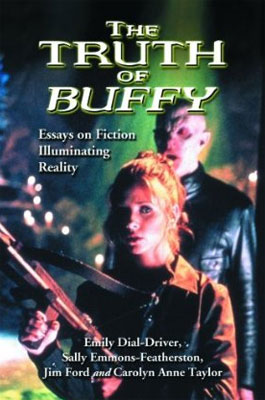
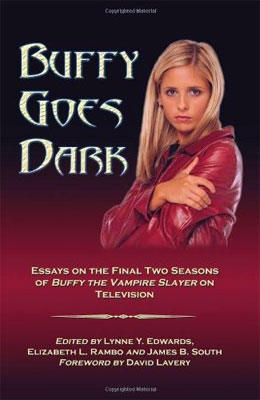
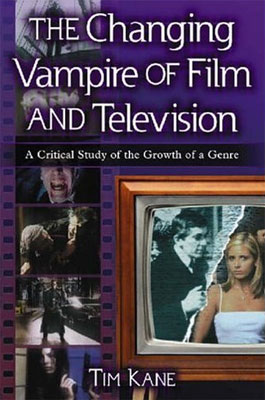
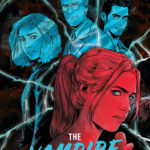

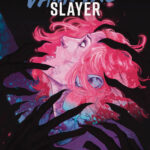

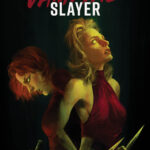
Interesting survey! I’m glad to see Buffy Goes Dark get some press. I’ve not yet gotten to the Truth of Buffy book, so I’ll check that one out. If you’re interested in finding out more about teaching a course on Buffy, I have a seminar on the series at Emerson College. Feel free to drop me a line via my email I’ve listed here. And, if you’re interested, I’ve linked to a website that publishes undergraduate work on Whedon’s work.
Pingback: Buffy Books By McFarland's Scholarly